What is stress acne and how do you deal with it? Is that why you keep getting zits before an important event?
Here’s how you can deal with those pesky stress-induced breakouts.
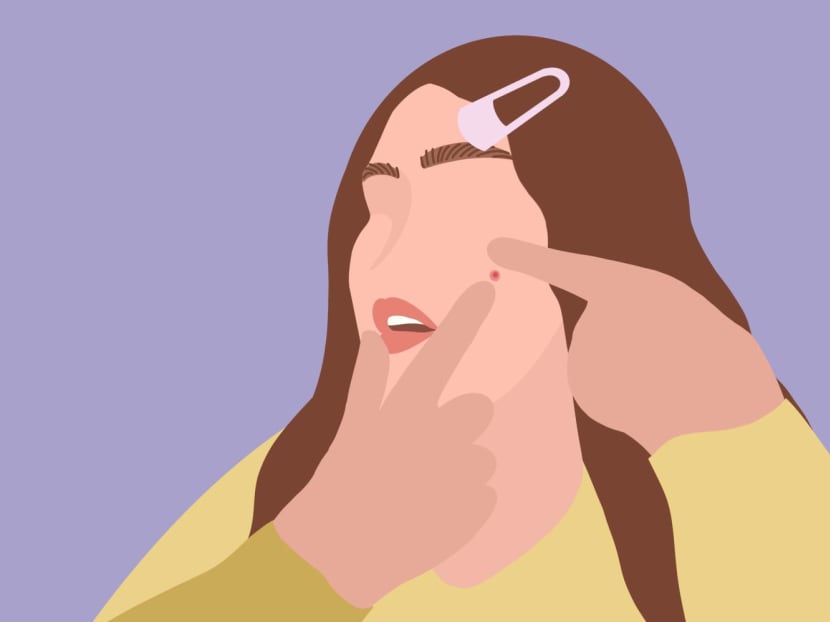
What exactly is stress acne? (Photo: iStock/Ada daSilva)

This audio is generated by an AI tool.
Everyone has had breakouts in their lifetime; let’s face it, some of us still do. But perhaps you’ve noticed that you seem to experience breakouts during particularly stressful periods in your life – wedding prep, work deadlines or important exams.
And sometimes, this acne seems particularly stubborn and persistent, never really going away completely or keeps popping up in the same area.
So how do we know if it’s hormonal or caused by something else?
WHAT IS STRESS ACNE?
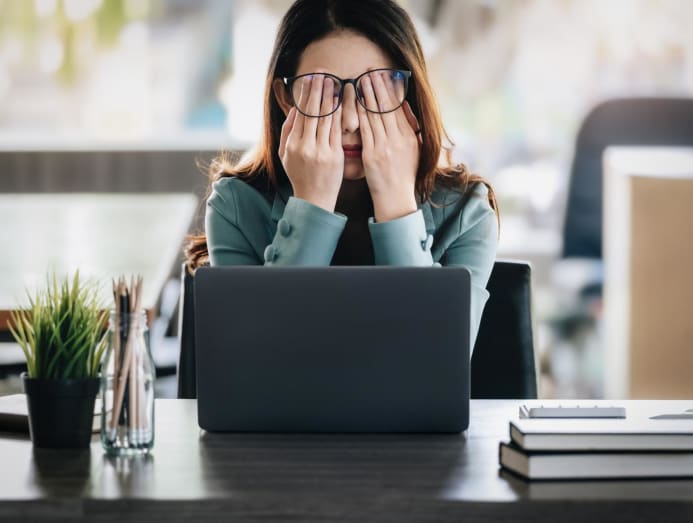
As its name states, stress acne is triggered by stress.
When you experience stress, your body produces more stress hormones like cortisol, which can contribute to an increase in sebum production and inflammation in the skin. This can lead to clogged pores and the development of acne, explained Dr Angeline Yong, consultant dermatologist at Angeline Yong Dermatology.
“Stress itself does not cause acne,” said Dr Rachel Ho, aesthetic doctor at La Clinic. But stress can contribute to the development or worsening of acne if you already have breakouts or are prone to them.
In short, stress can disrupt the balance of other hormones in the body, such as testosterone, which can further promote the formation of acne, added Dr Yong.
4 REASONS WHY YOUR STRESS ACNE IS ONGOING

1. Experiencing prolonged or chronic stress. This can weaken your immune system, leading to increased susceptibility to acne-causing bacteria and subsequently, acne breakouts, said Dr Yong. Moreover, stress can also delay wound healing, which can affect recovery, shared Dr Ho.
2. A continued inflammation cycle. “Acne itself is an inflammatory condition,” said Dr Yong. So when stress triggers acne breakouts, the resulting inflammation can further perpetuate the cycle of acne as it leads to more clogged pores, increased oil production and a favourable environment for acne-causing bacteria. The result: Stress acne becomes persistent and more difficult to manage.
3. Less than desirable lifestyle habits. For some people, stress can cause binge eating, sleeping poorly or neglecting one’s skincare routine – all factors that can worsen acne, said Dr Ho.
A diet high in processed foods and sugar can potentially worsen acne, and inadequate sleep can disrupt hormonal balance and impair skin health, explained Dr Yong.
4. Increased skin sensitivity and reactivity. Stress can make skin more reactive and sensitive, which can result in a heightened response to environmental factors or even your regular skincare products. This leads to increased breakouts and a persistent acne condition, said Dr Yong.
MANAGING YOUR STRESS LEVELS
The good news: Stress acne can be managed.
Managing persistent stress acne requires a multifaceted approach, from addressing both your underlying stress levels and implementing a consistent skincare routine, said Dr Yong.

Besides engaging in activities to relax and unwind, such as exercise or meditation, simply getting adequate sleep can help reduce stress acne, advised Dr Ho.
Also practise good hygiene habits. Though Dr Yong cautioned against over-washing or aggressively scrubbing the face as it can irritate the skin and potentially worsen your acne. Instead, use gentle cleansers and avoid touching your face to minimise the transfer of dirt and bacteria.
And change your pillowcases every few days and use clean towels for your face daily. These can accumulate oil, dirt and bacteria, which can contribute to breakouts.
Maintaining a balanced diet is also important for overall skin health. Opt for lower glycaemic index foods – green leafy vegetables, whole grains and lean protein, instead of high glycaemic index foods like processed snacks and sugary drinks, to reduce aggravating your acne, shared Dr Ho.
Ultimately, stress and hormones can interact and influence each other, and it is possible to experience both stress and hormonal acne simultaneously, said Dr Yong.
DIFFERENCE BETWEEN STRESS AND HORMONAL ACNE
While stress acne and hormonal acne might appear similar at a glance, each has its own distinct characteristics.
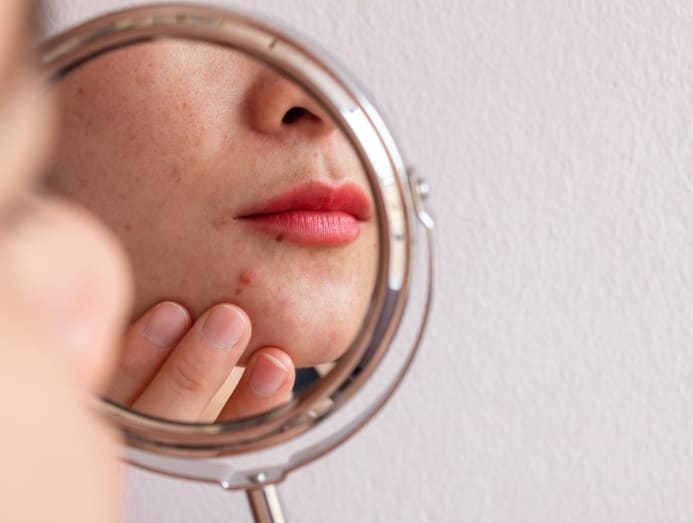
1. Triggers
“Stress acne is primarily exacerbated by stress and the associated hormonal changes that occur during these periods of stress,” said Dr Yong.
Hormonal acne, on the other hand, is driven by fluctuations in hormone levels, which can occur during puberty, menstrual cycles, pregnancy or when they are underlying hormonal imbalances, she explained.
2. Duration
How long your breakouts last can also be telling.
Stress acne usually occurs relatively quickly in response to stressful situations. However, it also means that as long you are stressed, the acne will remain, shared Dr Ho.
In contrast, hormonal acne tends to be more persistent and may occur cyclically or consistently due to ongoing hormonal imbalances, said Dr Yong.
3. Location
While both stress and hormonal acne can appear on the face, Dr Ho shared that hormonal acne tends to be on the chin and jawline whereas stress acne is usually found on the forehead, nose, chin, cheeks, and even on the chest and back.
“Stress acne can occur on any parts of the skin with oil glands, but it will seem more apparent on regions with a higher concentration of oil glands,” said Dr Ho.
4. Type of pimples
According to Dr Yong, stress acne typically shows up as small, inflamed pimples, papules (raised bumps) or pustules (pus-filled and blister-like). But more importantly, it may also include redness along with increased skin sensitivity.
Meanwhile, hormonal acne tends to involve a wide range of lesions, which can include deeper, painful cysts as well as whiteheads, blackheads and inflamed papules.
COMBAT YOUR STRESS ACNE WITH THESE INGREDIENTS
1. Beta-hydroxy acids like salicylic acid
It penetrates the follicles to remove dead skin cells, excess oil and debris, said Dr Yong. In addition, oil-soluble salicylic acid is able to penetrate deeper into the pores to deliver effective results, added Dr Ho.
Try: Kiehl’s Truly Targeted Blemish-Clearing Solution, S$50
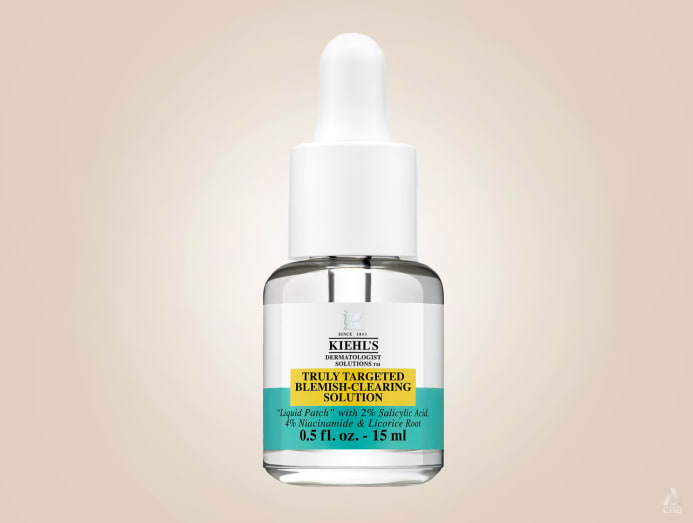
Formulated with 2 per cent salicylic acid and niacinamide and licorice root extract, this acts like an invisible liquid pimple patch to calm skin redness, reduce pimple appearance and fade post-blemish marks.
Available at www.kiehls.com.sg
2. Niacinamide (also known as vitamin B3)
This multi-tasking active regulates sebum production, reduces inflammation and strengthens skin’s barrier function. Plus, it also helps fade post-acne marks too.
Try: Esmi Skin Minerals Anti-Redness Minty Green Smoothie Serum, S$61
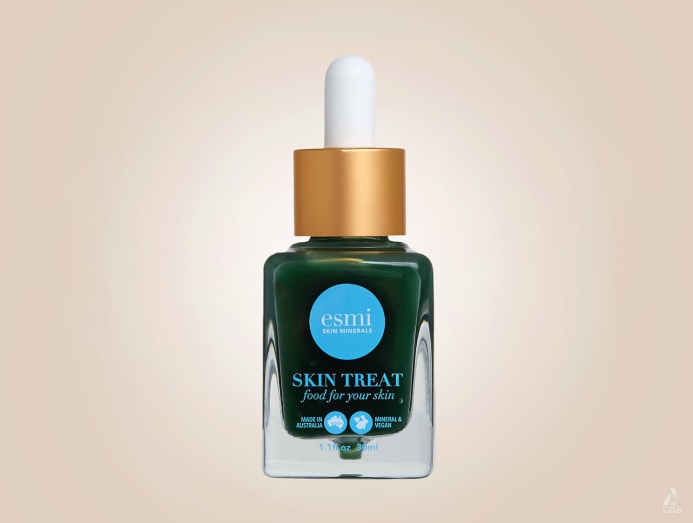
A healing serum for inflamed, acne-prone skin, it contains niacinamide alongside antioxidant-rich lanceolata extract, aloe vera and glycosaminoglycans (GAGs) to protect, soothe and hydrate the skin.
Available at www.sephora.sg
3. Tea Tree
“Tea tree oil is particularly beneficial for stress acne because it addresses both the bacterial and inflammatory components that contribute to acne development,” explained Dr Yong.
Try: The Body Shop Tea Tree Skin Clearing Facial Wash, S$25
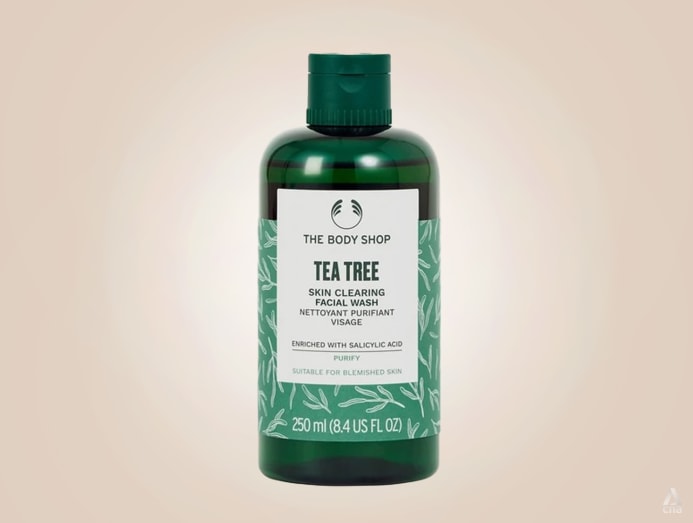
Combines Community Fair Trade tea tree oil from Kenya and salicylic acid, this gentle cleanser removes traces of dirt and bacteria without drying out the skin. It also promises to visibly reduce the appearance of blemishes in seven days.
Available at The Body Shop stores.
4. Retinoids
While this ingredient in the form of adapalene, tretinoin or over-the-counter retinol might commonly be associated with anti-ageing benefits, it can help address acne woes too. “Retinoids can be beneficial for stress acne as they promote renewal of skin cells, prevent pore blockage and help improve overall skin texture and appearance,” added Dr Yong.
Try: Etat Pur Retinol 0.3%, S$52.90
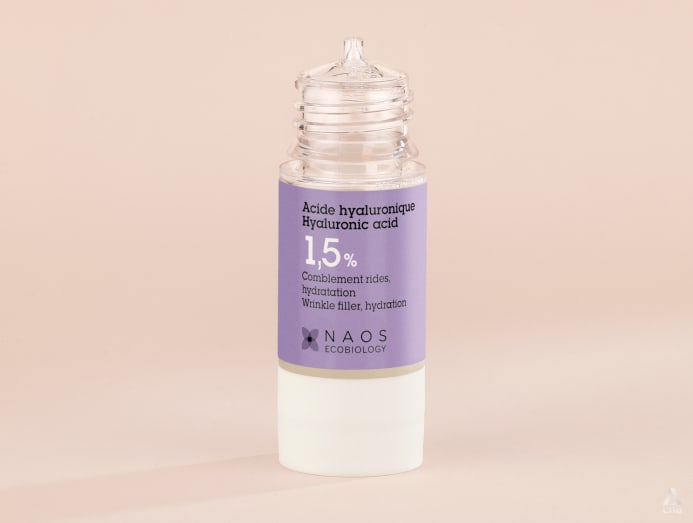
A targeted treatment with 0.3 per cent retinol, it stimulates cell renewal and boosts collagen production for a youthful looking complexion.
Available at www.watsons.com.sg






